They Control What You Wear, Watch, and Think — Inside North Korea’s System
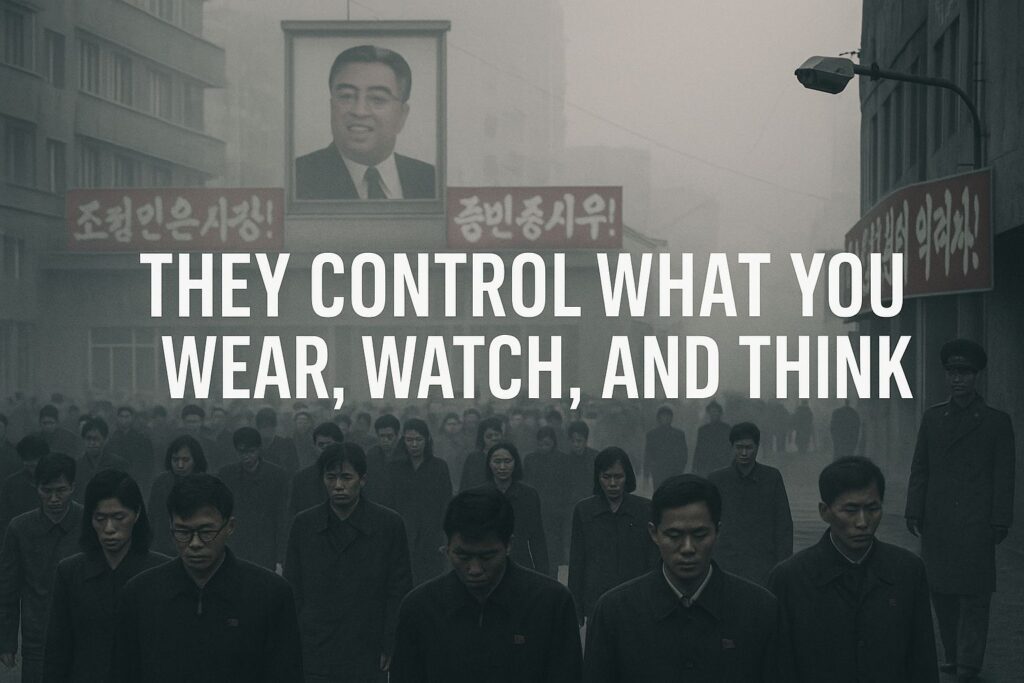
Imagine a society where every facet of your existence, from the clothes you wear to the thoughts you might entertain, is meticulously curated and controlled by an unseen hand. A place where personal freedom is not a right, but a dangerous illusion, and dissent is met with unimaginable consequences. This is not a dystopian novel, but the stark reality for millions living in one of the world’s most isolated nations.
In this unique geopolitical landscape, the government’s reach extends into the most intimate corners of its citizens’ lives. Decisions typically left to individual choice—where one lives, what profession they pursue, or even what they study—are dictated by state decree. This pervasive oversight creates an environment where trust is a luxury, and vigilance is a necessity, as the boundaries between public and private life blur into non-existence.
Such a system thrives on absolute authority, shaping not just behavior but also perception. The information citizens receive, the entertainment they consume, and even their physical appearance are all subject to strict regulations designed to maintain ideological purity and unwavering loyalty. Understanding the intricacies of this control offers a rare glimpse into a world unlike any other, where the state is paramount and the individual is merely a cog in a meticulously managed machine.
A Nation Forged in Division and Famine
To comprehend the current state of this enigmatic nation, one must first understand its origins. Following World War II, with the defeat of Japan, the Korean peninsula, previously under Japanese occupation, was divided. The northern half fell under the influence of the Soviet Union, while the southern half was aligned with the United States. This division mirrored the post-war partitioning of Germany, leading to the establishment of a communist state in the North. The first Supreme Leader, Kim Il Sung, a former guerrilla fighter against Japan, established a dynastic rule that continues to this day, with his grandson currently at the helm.
This is not merely a communist dictatorship, but a family- led one, where every governmental action is meticulously designed to perpetuate the Kim family’s control. Remarkably, this nation was not always in its current impoverished state. In 1980, its per capita GDP surpassed that of both India and China, offering its citizens free healthcare, education, housing, heating, and transportation. The economy experienced significant growth, with an annual GDP increase of approximately 4.5% between 1950 and 1980.
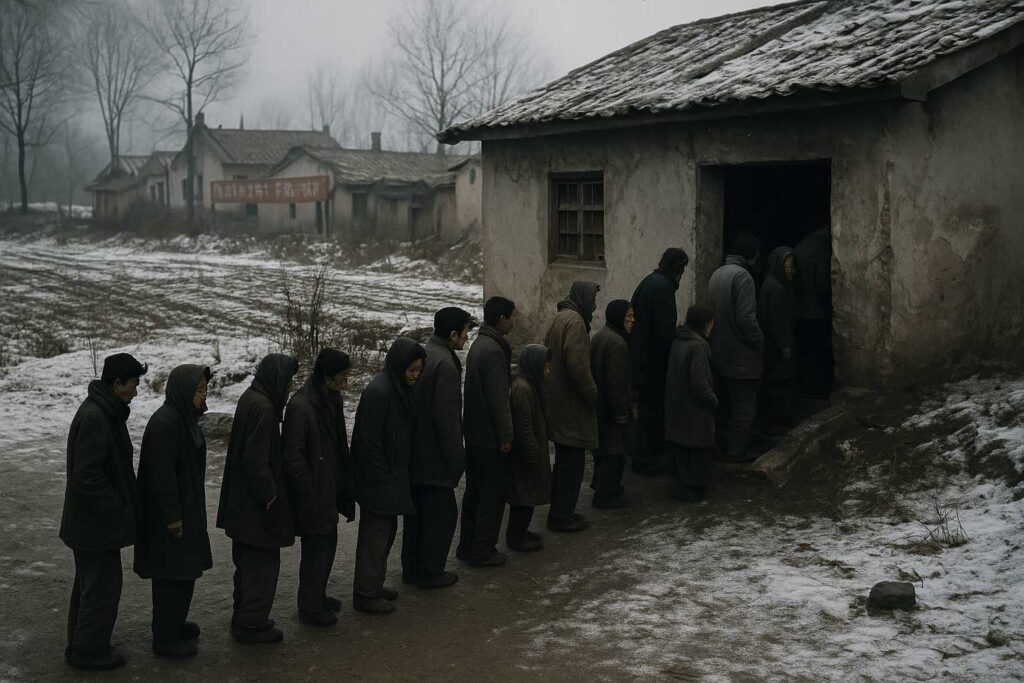
However, the collapse of the Soviet Union in the 1990s proved catastrophic. The cessation of cheap oil and food supplies from the USSR led to a severe economic downturn. Power stations ceased operation, widespread blackouts ensued, and the population faced mass starvation. Despite offers of aid from the United States, contingent on the cessation of its nuclear weapons program, the government refused, leading to further international isolation.
The situation was exacerbated by a devastating flood in August 1995. Lacking both financial resources and the willingness to compromise for its people’s welfare, the government prioritized concealment over relief. The capital city, Pyongyang, was meticulously maintained as a facade of stable socialism, with homeless and starving individuals forcibly removed to preserve its image. While ruling party workers in Pyongyang enjoyed amenities, the rural areas suffered immensely.
Accounts from that period, such as those detailed in Andrew Natsios’s book, ‘The Great North Korean Famine,’ reveal the harrowing choices families faced, with elderly relatives often sacrificing themselves to ensure the survival of younger generations. It is estimated that between 500,000 and 2 million people perished during this man-made catastrophe, a testament to the regime’s priorities and the devastating consequences of its policies.
The Shadow of Collective Punishment: The Shin Dong-hyuk Story and Guilt by Association
The pervasive control exerted by the state is perhaps most chillingly exemplified by the concept of “guilt by association,” a doctrine that extends punishment for a single individual’s perceived transgression across generations of their family. This draconian law ensures that even the most distant relatives can be condemned to a life of hardship, imprisonment, or worse, for the actions of another. It fosters an environment of profound distrust, where even close family members are wary of one another, knowing that a single misstep could doom them all.
One of the most harrowing accounts illustrating this brutal system is that of Shin Dong- hyuk. Born in 1981 within the confines of Political Prison Camp #14, Shin’s existence was a direct consequence of this law. His family was imprisoned because his uncle had fled to South Korea, rendering their blood impure in the eyes of the North Korean government. He spent his childhood in horrific conditions, subsisting on meager corn porridge and resorting to eating grass and rats to survive. The camp, home to approximately 20,000 prisoners, operated under simple, brutal rules: escape attempts were met with execution, and failure to report an escape plan meant the same fate.
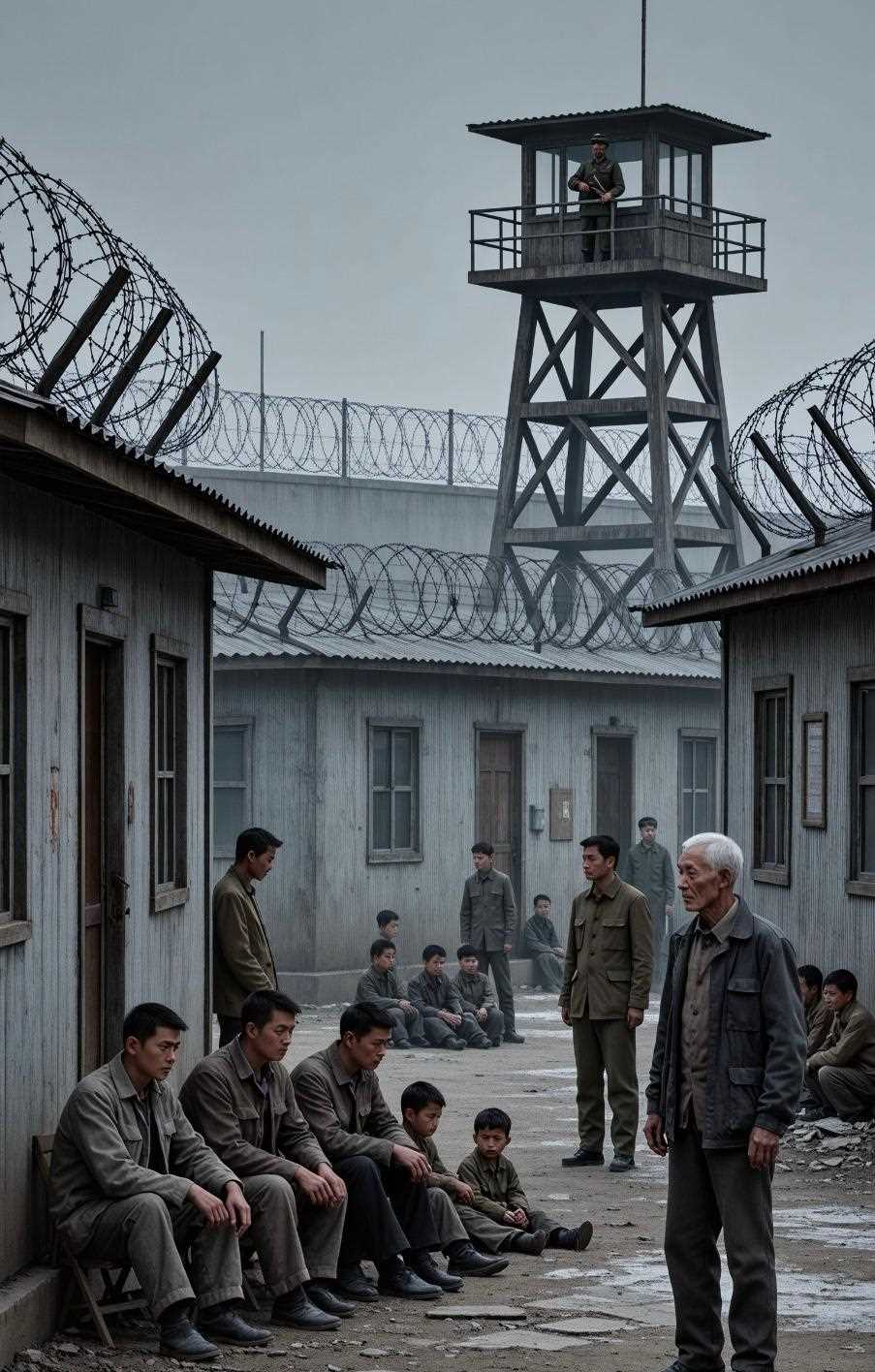
At the tender age of 13, Shin Dong-hyuk, driven by hunger and a naive hope for extra food, reported his mother and brother’s escape attempt to the guards. Seven months later, he was forced to witness their public execution—his mother by hanging, his brother by shooting. Following this traumatic event, he endured six months of merciless torture. In 2005, at 23, Shin successfully escaped the camp, making his way to China and eventually to South Korea.
His survival brought to light the atrocities of the prison camps, and he became a prominent human rights advocate, his story reaching the United Nations and inspiring the acclaimed book, ‘Escape From Camp 14.’ As Shin himself described it, the prison camp was akin to hell, a place where souls lived amongst flames. This system of collective punishment, known as Songbun, classifies every citizen at birth based on the perceived political loyalty of their family, going back generations. It dictates every aspect of life: where one lives, their occupation, food rations, healthcare, education, and even marriage prospects.
The population is broadly divided into three classes: Core (loyalists), Wavering (those suspected or unsure), and Hostile (enemies of the government). The capital, Pyongyang, is reserved primarily for the Core class, with Hostile citizens barred from entering a 50 km radius. This rigid social stratification fosters an environment where distrust is paramount, and individuals are often compelled to spy on one another, creating a society where no one can truly be trusted.
The Iron Grip on Daily Life: Movement, Entertainment, and Information Control
The government’s pervasive control extends to every aspect of daily life, leaving no room for individual autonomy. Citizens are subjected to strict regulations concerning their appearance, including approved hairstyles—only 15 for men and 15 for women, with the leader’s own haircut notably absent from the list, reserved exclusively for him. Dyeing hair is forbidden, as are blue jeans, ripped jeans, skinny jeans, branded clothing, tight dresses, short skirts, and sun hats, all deemed to be influences of Western culture. Even makeup is restricted to minimal application, and red lipstick is prohibited for women.
To enforce these seemingly trivial yet deeply significant rules, a ‘Fashion Police’ operates, secretly monitoring citizens and meting out punishments ranging from cutting forbidden clothing to fines and imprisonment. This extreme control over personal style stems from the government’s fear of ‘cultural invasion’ and the belief that an appreciation for foreign trends could undermine loyalty to the state. Movement within and outside the country is severely restricted. Domestic travel requires government permission, with citizens needing to state their purpose for travel.
International travel is even more tightly controlled, considered a traitorous act if undertaken without explicit state approval. The consequences for unauthorized travel are dire, ranging from forced labor and torture to life imprisonment or even death for the individual and their entire family. The severity of this policy was starkly highlighted during the COVID-19 pandemic, when border guards were given ‘shoot at sight’ orders for anyone attempting to cross the border without permission, resulting in numerous fatalities. Despite these extreme dangers, many still attempt to flee, often to China, though the Chinese government frequently deports these escapees back, where they face severe repercussions.
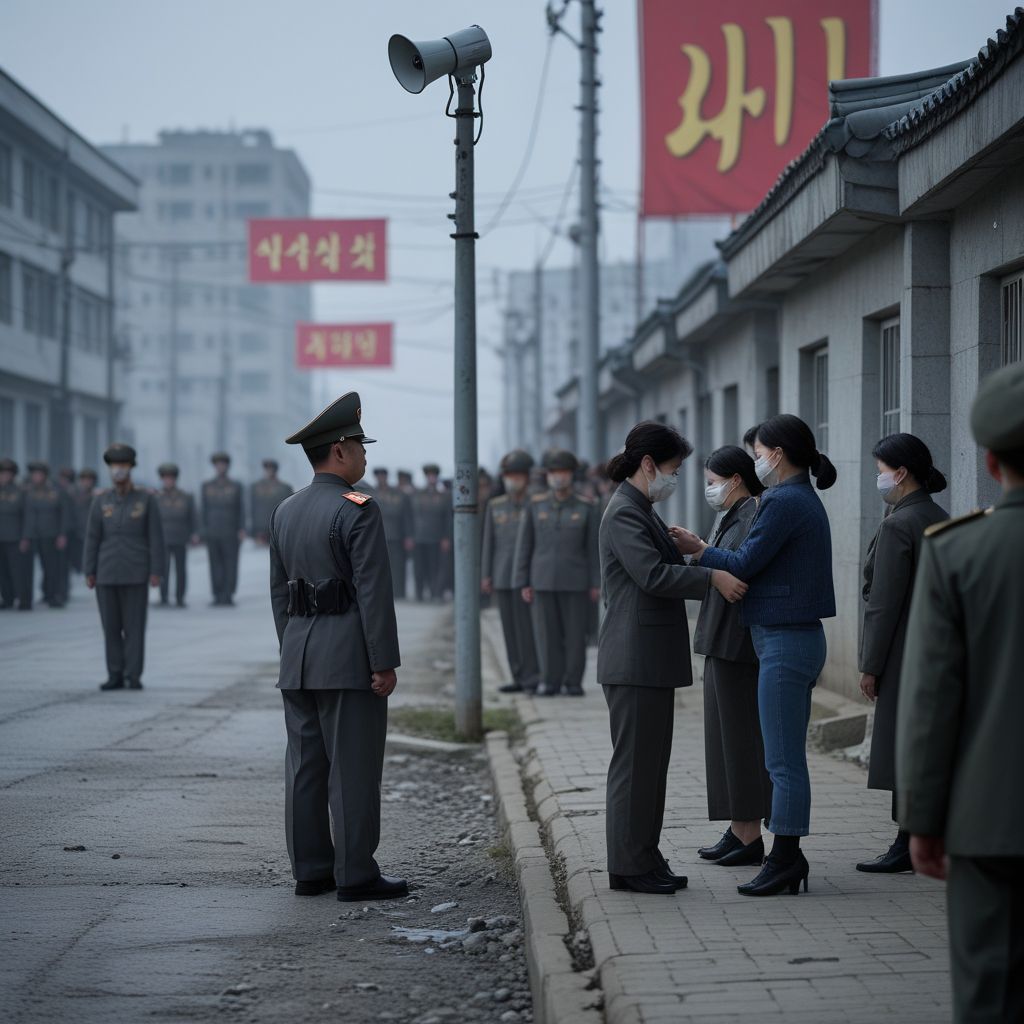
Entertainment and information are equally, if not more, tightly controlled. Foreign movies and television shows are strictly banned, with only government-controlled channels broadcasting propaganda designed to glorify the regime and its leaders. Watching or distributing foreign content is a grave crime, punishable by harsh sentences, including long- term hard labor or even public execution. Despite these severe penalties, a black market for South Korean dramas and films thrives, with USB sticks becoming the preferred method for smuggling content.
Authorities have even resorted to random electricity cuts to catch those watching illicit media, as power outages would trap DVDs in players, allowing officials to inspect them. The internet, as the rest of the world knows it, is virtually non-existent for the average citizen. Access is extremely limited, requiring government permission, and is heavily monitored by librarians who oversee every search. The general populace is confined to an internal intranet, a highly censored network with a limited number of government- approved websites, and even this is prohibitively expensive for most.
Smartphones are similarly censored, incapable of international calls, and equipped with software that periodically screenshots user activity, sending it directly to the government. There are no app stores; even approved applications must be acquired from physical stores, further illustrating the suffocating level of control over information and communication.
The State as Deity: Religion and the Cult of Personality
In this nation, religion, as understood elsewhere, is officially non-existent. It is an atheist state where the practice or preaching of any faith is punishable by death. Christians, in particular, face severe persecution, often targeted due to perceived American influence, with thousands imprisoned and tortured. The public execution of individuals for possessing or distributing religious texts, such as a Bible, and the subsequent imprisonment of their families, underscores the extreme measures taken to suppress independent belief systems.
In the absence of traditional religion, a powerful cult of personality has been meticulously cultivated around the ruling family. The first and second Supreme Leaders are revered as deities, their images and statues ubiquitous in homes, offices, schools, and public spaces. Citizens are expected to protect these images, even at personal risk, with failure to do so leading to severe repercussions. This pervasive presence creates an Orwellian atmosphere, where citizens are constantly under the watchful eye of their leaders, reinforcing the idea that the state is the ultimate authority and source of all guidance. The secret police routinely inspect homes to ensure compliance, and any perceived disrespect towards the leaders’ images can lead to prosecution, even if accidental.
Economic Hardship and the Scourge of Forced Labor
The economic reality for the majority of the population is dire. A staggering 69% live in poverty, lacking basic necessities such as adequate food, clean water, education, and healthcare. Most households are devoid of common appliances like refrigerators, washing machines, or even bicycles. A primary contributor to this widespread poverty is the government-assigned employment for nearly all men, who receive salaries that have remained stagnant since the 1990s.
These wages are so meager that they often amount to the equivalent of just 7-9 kg of corn per month. For instance, a doctor in 2014 reportedly earned a monthly salary that could not even purchase 1 kg of rice. This economic vacuum has inadvertently led to a significant shift in household dynamics. With men earning so little, women have become the primary breadwinners, often working in local markets known as Jangmadang. These markets, which emerged out of necessity after the government failed to provide food in the 1990s, have become vital lifelines.
They are places where everything from food and medicine to smuggled foreign media can be found. Women account for over 70% of household income, effectively running these black markets. Beyond their economic function, the Jangmadang have also become crucial information hubs, where people learn about the outside world and the stark contrast in living standards, leading to a growing disillusionment with their own country.
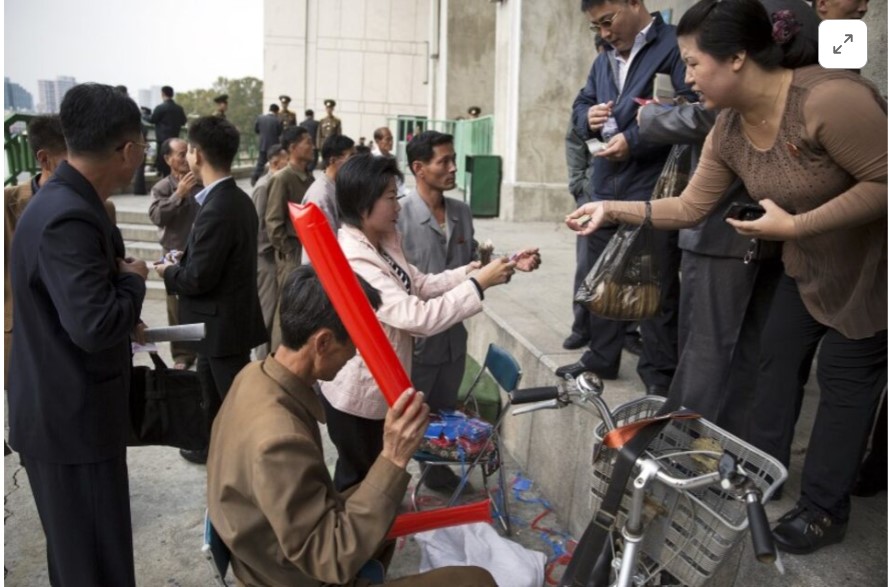
CREDIT;REUTERS.COM
Adding to the pervasive hardship is the widespread practice of forced labor, a form of modern-day slavery that underpins the nation’s economy. Citizens are compelled to work 12-18 hours a day in construction, farms, mines, and factories, with much of the nation’s resources diverted to weapons development. A significant portion of this forced labor is carried out by individuals held in detention centers and political prison camps. The legal system itself mandates years of forced labor even for those accused of minor infractions.
The conditions in these political prison camps are particularly brutal, with an estimated 80,000 to 120,000 people imprisoned across 5-6 such facilities. Prisoners face starvation, with approximately 40% dying from hunger, and are forced into grueling 16-18 hour workdays. Survival often means resorting to eating grass, rats, snakes, or even pig fodder. Instances of extreme violence, such as a 7-year-old girl being beaten to death for eating fallen grains or a prisoner executed for stealing potatoes, highlight the inhumane conditions and the absolute disregard for human life within these camps.
Escape attempts are met with lethal force, often involving electrified fences, as tragically experienced by a friend of Shin Dong-hyuk. Former guards have revealed that in the event of war or revolution, orders exist to kill all prisoners to erase evidence of the camps, a chilling echo of historical atrocities.
A Silent Revolution: The Seeds of Change
Despite the overwhelming control and oppression, a subtle yet significant shift is occurring within this tightly controlled society. A silent revolution, largely spearheaded by women, is slowly gaining momentum. As the primary operators of the Jangmadang markets, women have become conduits for information from the outside world.
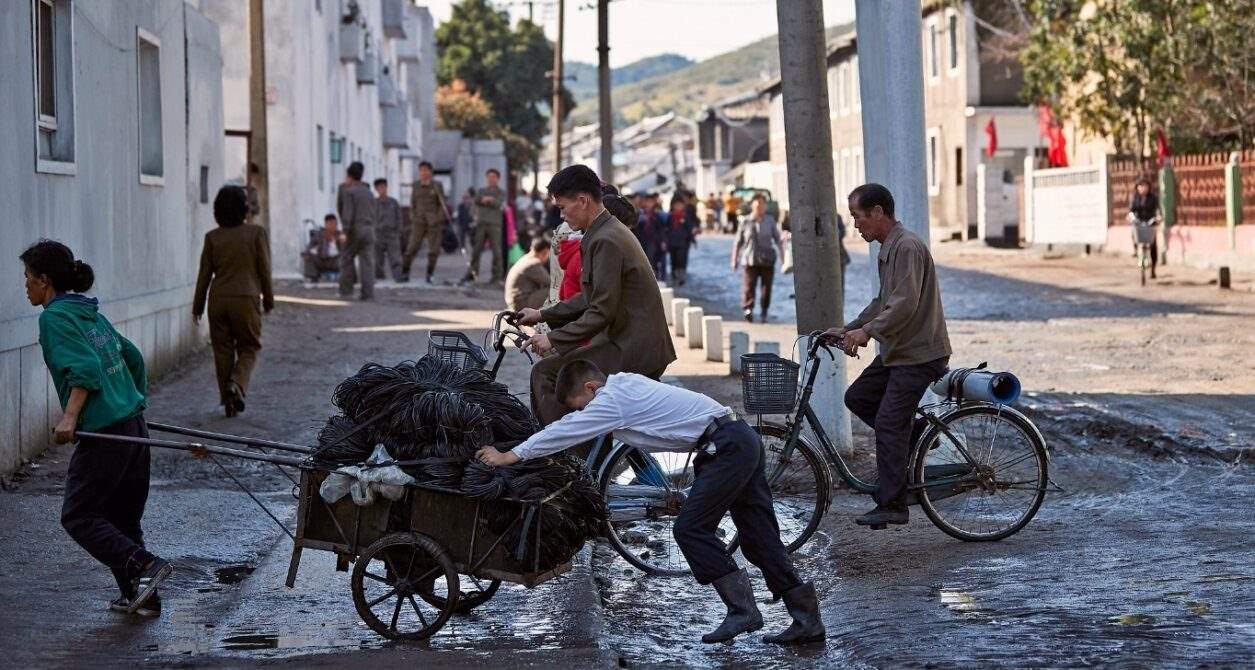
credit;NKNEWS.ORG
Through these informal networks, knowledge of different lifestyles, greater freedoms, and better living conditions in other countries is slowly disseminating, fostering a growing disillusionment with the current regime. This exposure, however limited, plants seeds of doubt and a desire for change, challenging the carefully constructed narrative of state-imposed isolation.
Conclusion
Despite the intense restrictions, North Korea isn’t alone in its descent into authoritarian collapse. Similar signs of regime failure are now surfacing in the Middle East.
Also Read: The Fall of Bashar al-Assad? Syria’s Potential Collapse in December
The picture painted of life under this absolute regime is one of profound control, hardship, and a constant struggle for basic human dignity. From the cradle to the grave, every aspect of an individual’s life is meticulously managed, their thoughts and actions policed, and their freedoms curtailed. The pervasive fear instilled by the “guilt by association” doctrine and the brutal realities of forced labor camps serve as stark reminders of the consequences of dissent.
Yet, even in the face of such overwhelming oppression, the human spirit finds ways to resist, to connect, and to dream of a different future. The quiet resilience of its people, particularly the women who navigate the complexities of survival and information exchange, offers a fragile hope that even the most impenetrable walls can eventually begin to crack, ushering in an era where individual liberty and human rights are no longer distant aspirations but tangible realities.


